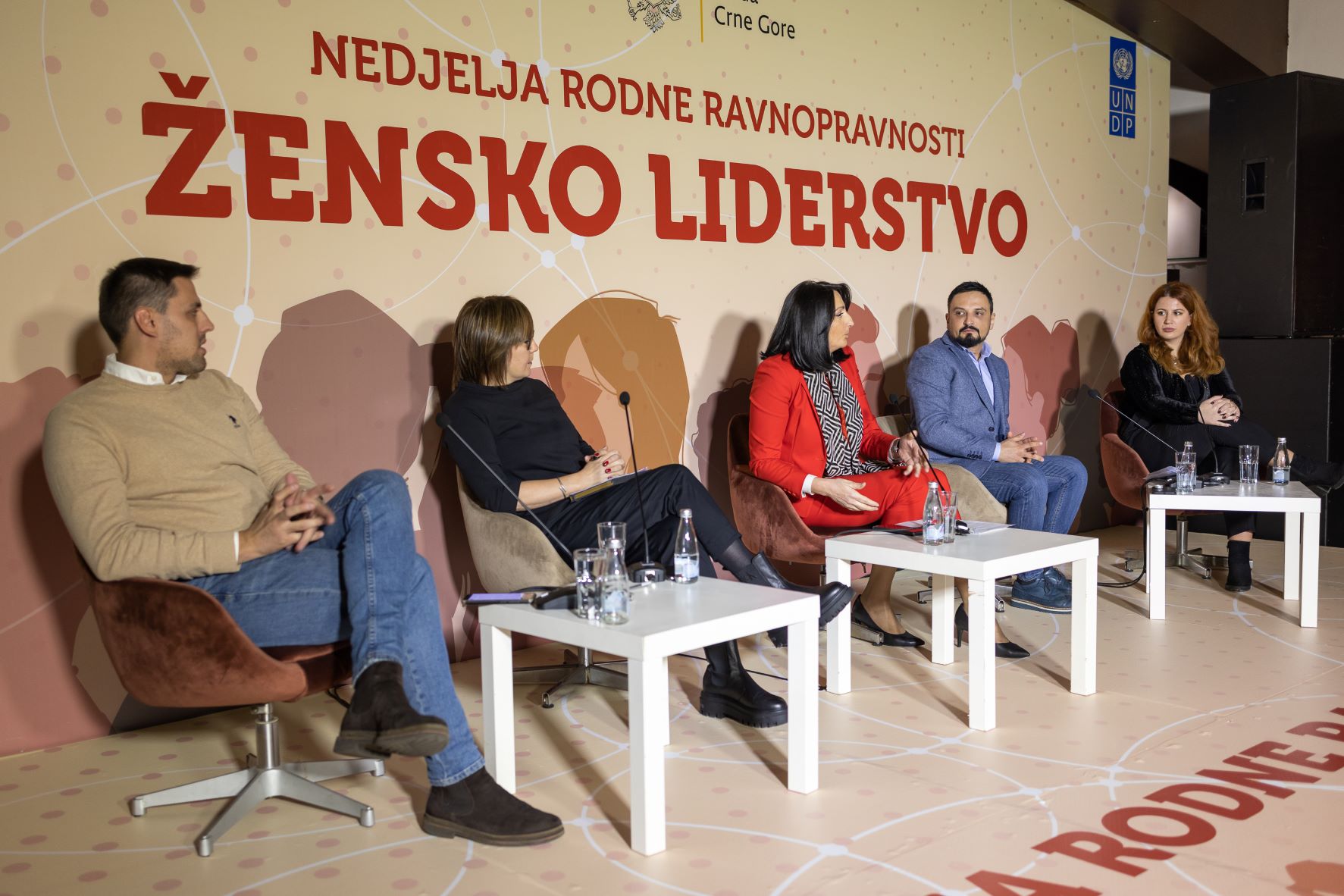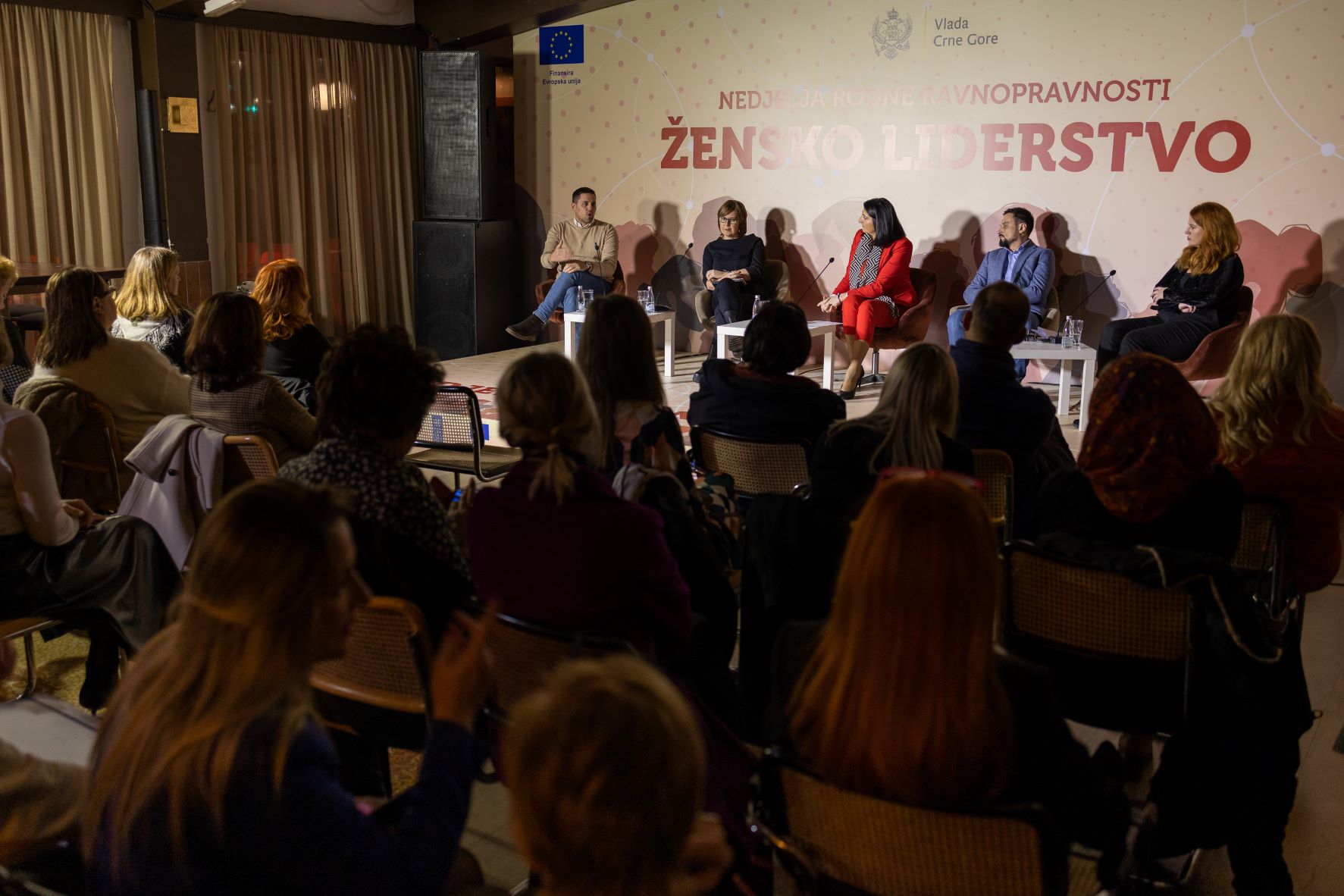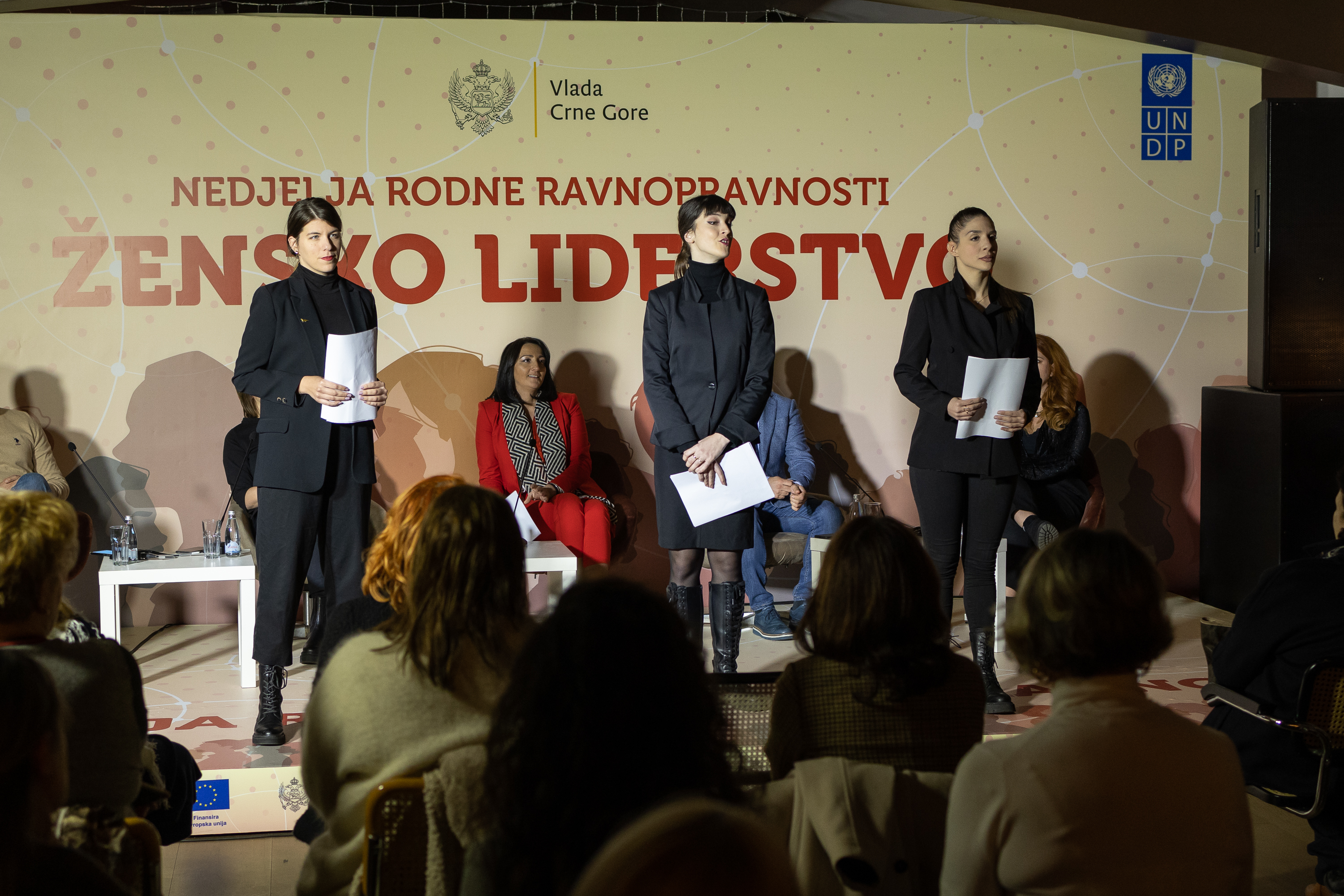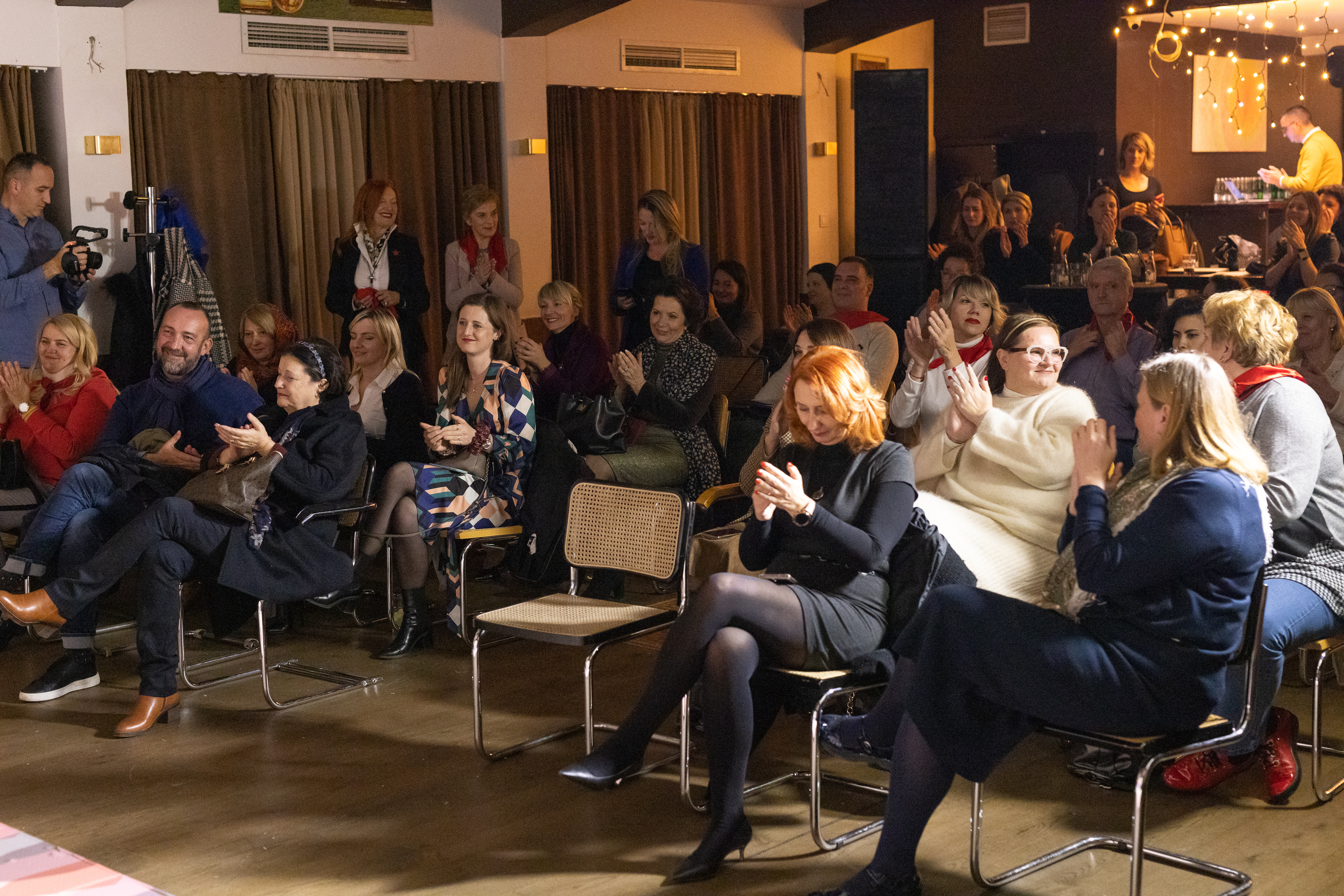The fight for women's political rights 80 years ago and today
Gender equality remains a far-reaching goal
November 29, 2022

Podgorica, 29 November 2022 – The fight for gender equality in all spheres of society remains a far-reaching goal, even though the women of Montenegro and then Yugoslavia won the right to vote as early as 1945. The rich legacy left to Montenegrin women by their ancestors is the basis for the fight for equality that continues – it was said at the panel discussion "Women's Leadership", held on the second day of Gender Equality Week.
This year, the countries of the Western Balkans are marking the 80th anniversary of the establishment of the first women's political network, which paved the way for the fight for women's rights and resulted in acquiring political, economic and social rights. However, even though the equal representation of women in politics is essential for the development of democracy and despite the fact that women make up half of the population in Montenegro, they remain equal in decision-making.
A historical analysis titled "Winning the Freedom authored by Tatjana Koprivica, art historian, Bozena Miljic, historian, and Milica Nikolic, anthropologist, was presented at the event. The text provides an overview of the activities, struggles, sacrifices and dedication of Montenegrin and Yugoslav women in the period before winning the right to vote and immediately after, because "freedom has never been a gift throughout history".

Koprivica and Miljic reflected on the historical path that Montenegrin women threaded to fight for their political rights, focusing on the history of the women's political movement during the 20th century. They pointed to the activist approach of the women's struggle, both in the pre-war period, when women, although active, were invisible in the political sense, and in the post-war period, which was particularly important.
"After winning the right to vote in 1945, Montenegrin women bravely stepped into the public space and began conquering social spheres previously reserved for men. They made an immeasurable contribution to the emancipation of the entire society and laid a significant foundation for the struggle of all generations to come", Koprivica said.
Political scientist Nemanja Batricevic reflected on the contemporary moment and the contemporary challenges that women face in exercising their political rights. Batricevic drew a parallel and gave an overview of global political processes' impact on Montenegrin circumstances.
"The participation of women in political processes does not necessarily mean the improvement of the concept of women's rights, as an important segment of human rights. Moreover, we see that women are sometimes abused to achieve short-term political goals, to the detriment of women's rights. This phenomenon, along with the strengthening of social-conservative currents, is visible both at the global level and in Montenegro", he said.

Human rights activist, Danijel Kalezic, spoke about the fight for women's rights within the civil sector, and dew attention to the challenging path that women from the civil sector have gone through, especially from the 1990s until today. She believes that women's activism in public life must be clearly directed and set for the purpose of a true fight for a civil society founded on gender equality. "Such an approach implies a loud articulation of dissatisfaction due to the non-fulfilment of the rights that belong to women, regardless of which address or centre of power contests their rights", Kalezic said.
The UNDP Gender Programme Manager, Kaca Djurickovic, who moderated the panel, said that the lessons learned from the process of political empowerment of women can inspire new generations and all fighters for human rights in creating advanced strategies for strengthening the political participation of women.
The panel discussion was also a place for creative expression and the performance of ten members of the KIC pop choir, who symbolically called for activism by singing two songs. The panel began with a performance of a part of the play that was played 10 years ago on the occasion of celebrating the 70th anniversary of the establishment of the UNDP Gender Programme Manage. Actresses Jelena Djukic, Marija Djuric and Milica Scepanovic performed in the acting segment directed by director Marija Perovic.
Today's event was organised in the context of the "Communicating Gender Equality" project, implemented by UNDP with the financial support of the EU Delegation and through a partnership with the Ministry of Human and Minority Rights.


 Locations
Locations

